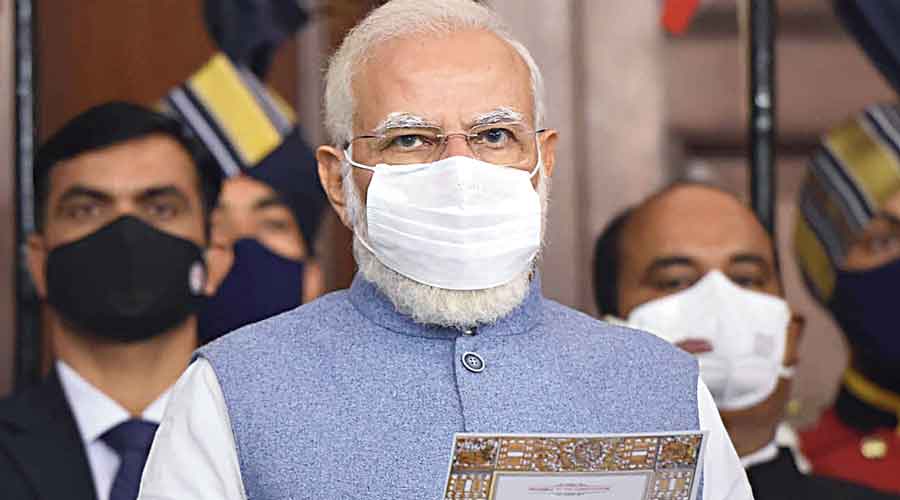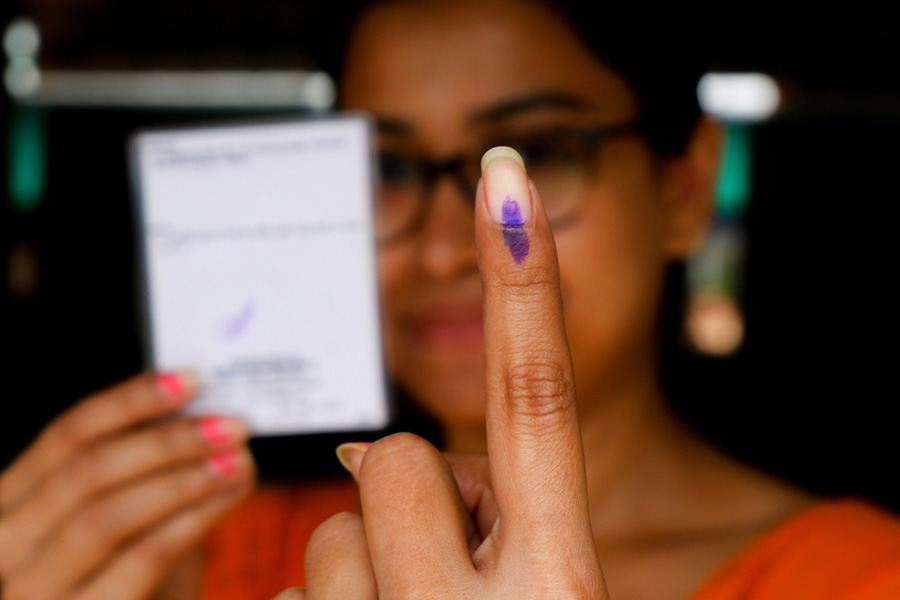India and the rest of the world are ramping up their defences against Omicron, the new highly mutated variant of Covid-19. The big question now is whether Omicron causes severe illness. The indications of how seriously we should take the virus will come over the next couple of weeks as doctors and scientists wait for reports of any significant rise in hospitalisations.
So far, the early signs are reassuring but not definitive. The mainly younger people who have come down with the virus in South Africa have suffered mild symptoms and most of them were unvaccinated. But young people normally tend to have lighter Covid-19 cases. As Omicron moves through the population, hitting older people and people with underlying conditions like diabetes and obesity, it may turn out to be a different story.
Prime Minister Narendra Modi said in his Maan Ki Baat address on Sunday, “We have to take necessary measures to protect ourselves and our loved ones by following Covid appropriate behaviour.” Modi added, “Never forget that corona has not gone yet. It is our responsibility to take all precautions.”
The Health Ministry has told states to carry out “intensive containment measures” and undertake “active surveillance” to ensure mask-wearing and social distancing as well step-up vaccination coverage.
Delhi Chief Minister Arvind Kejriwal, in a letter to Modi on Sunday, urged him to stop international flights from countries where Covid-19 cases are rising. “We should do everything possible to prevent the new variant… from entering India. A number of countries, including the European Union, have suspended travel to the affected regions,” he said. “I urge you to stop flights from these regions with immediate effect. Any delay in this regard may prove harmful,” he concluded.
Too early for reliable data
Doctors note that the variant was only reported to the World Health Organization (WHO) on November 24 and so there has been no time to properly assess the impact of the illness. The variant was first detected in Botswana and spread to South Africa and other nearby countries.
“We know that getting a rapid understanding of disease severity with Omicron - particularly in vaccinated individuals and re-infections - is absolutely critical, but it's just too early for reliable data,” said South African infectious diseases doctor Richard Lessells.
“Observations from clinicians on the ground are always important, and we lean heavily on them, but we need to be cautious about jumping on early reports that all cases with this variant are mild,” said Lessells, who coordinates clinical and epidemiological data for the South African Covid Variant Research Consortium.
“So with this, and the time lag for infections to progress to severe disease and hospitalisation, we would only expect to see the impact on hospitalisations in the next few weeks,” he said.
South African doctors report that most of those Omicron patients they have treated have kept their taste and smell and only had small coughs.
May be more contagious
The variant has been reported in more than a dozen countries though two South Africans in Bangalore who were thought to have it have since been found to be suffering from the Delta variant. The variants’ 32 mutations may make it even more contagious than the fast-spreading Delta lineage that devastated India and is still wreaking havoc in other parts of the world.
Pharmaceutical company BioNTech, which developed a Covid-19 vaccine with Pfizer, says it will need two weeks to assess whether the vaccine is effective against Omicron. It said if required, it can tweak its vaccine against the new variant within six weeks and begin shipping the reformulated version to countries in 100 days. Moderna says it expects if the variant escapes vaccines the company can have a new version on the market early in 2022.
“As most vaccines (work by) forming antibodies against the spike protein, so many mutations at the spike protein region may lead to a decreased efficacy of Covid-19 vaccines,” AIIMS Director Dr Randeep Guleria told PTI. As a consequence, the efficacy of vaccines including those administered in India needs to be “evaluated critically,” he said.
Infection potential high: Israel
Israel’s chief of public health services, Dr Sharon Alroy-Preis has warned that the potential for being infected by Omicron appears to be extremely high. Speaking at the Israeli Parliament, she cited the example of a flight from South Africa to the Netherlands, where 62 out of 600 passengers were found to be infected. “This is very, very fast," Alroy-Preis said.
Dr Dror Mevorach, head of the coronavirus department at Israel’s Hadassah University Hospital Ein Karem, agreed with South African doctors that the preliminary reports on the condition of people infected with Omicron were encouraging. “If it continues this way, this might be a relatively mild illness compared to the delta variant, and paradoxically, if it takes over, it will lead to lower infection rates,” and it will be easier to deal with globally,” the doctor said, according to the newspaper Haaretz.
South Africa right now has some 3,220 people Covid-19 and there has been no significant increase in the number being hospitalised, Professor Barry Schoub, chairman of the country’s Ministerial Advisory Committee on Vaccine, told Britain’s Sky News.
Angelique Coetzee, who heads the South African Medical Association, told the BBC that “what we are seeing clinically and remember, I’m at the epicentre -- that’s where I’m practising - is extremely mild. She said, though, that two weeks hence what she was saying about Omicron’s effects might be “something different.”
WHO cautious
The WHO, meanwhile, has sought to tamp down optimism that Omicron’s effects may be mild. Understanding the level of severity of the Omicron variant will take days to several weeks,” WHO said in a statement on Sunday, adding that “there is currently no information to suggest that symptoms associated with Omicron are different from those from other variants.”
One positive piece of news is that the current SARS-CoV-2 PCR diagnostics continue to detect this Omicron variant, WHO says.
Meanwhile, China could face more than 630,000 Covid-19 infections a day if it dropped its zero-tolerance policies by lifting travel curbs, according to a study by Peking University mathematicians reported by Reuters.











